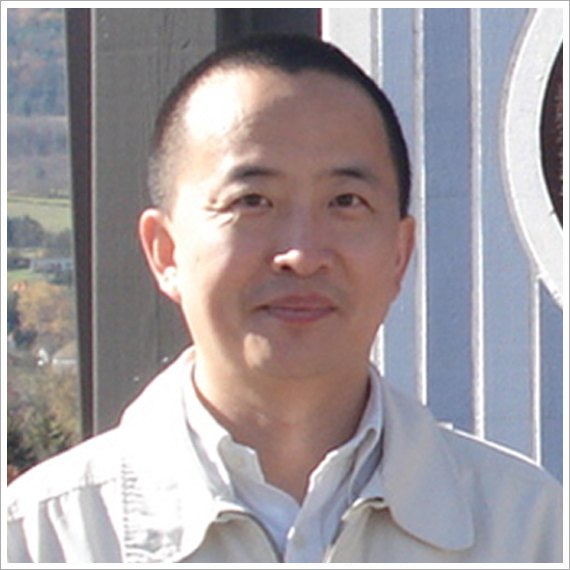
Jianxun (Jim) Song
Associate Professor
:(717) 531-0003 ext. 287768
Fax: (717) 531-4600
- DEPARTMENT Dept. of Microbiology & Immunology
Penn State University College of Medicine
- COUNTRY USA

Costimulation in T lymphocyte memory
Costimulatory signals expressed by professional antigen presenting cells (APC) are capable of promoting the formation of highly active effector T cell, which are able to develop into memory populations. However, the mechanisms by which constimlation regulates T lymphocyte memory remain uncertain. Several molecular targets of costimulation (e.g., aurora B, survivin, bcl-xL, PKB) have been identified to sustain T cell proliferation or survival, and their cooperation in promoting T cell persistence as well as tumor regression is being investigated. Findings related to this project will provide new insights into why costimulatory signals might need to be sustained over time and suggest a potential novel approach to augment cellular immunotherapy for cancer.
Regulation of differentiation of T lymphocytes from pluripotent stem cells
Most effort is being expended to develop and optimize strategies for utilizing highly reactive T lymphocytes from pluripotent stems cells (PSC) for cell-based therapies. Because of the plasticity and potentially unlimited capacity for self-renewal, PSC-derived immune cells have great potential in the treatment of diseases (e.g., cancers, autoimmune diseases). Antigen-specific highly reactive T cells can be generated by genetic modification of PSC with specific T cell receptor and stimulation with Notch signaling, and their therapeutic potential in the treatment of cancers and autoimmune diseases is being determined. Findings related to this project will contribute important information in the areas of vaccine design, autoimmune therapy, and immune-based anti-cancer strategies.

Associate Professor
:(717) 531-0003 ext. 287768
Fax: (717) 531-4600